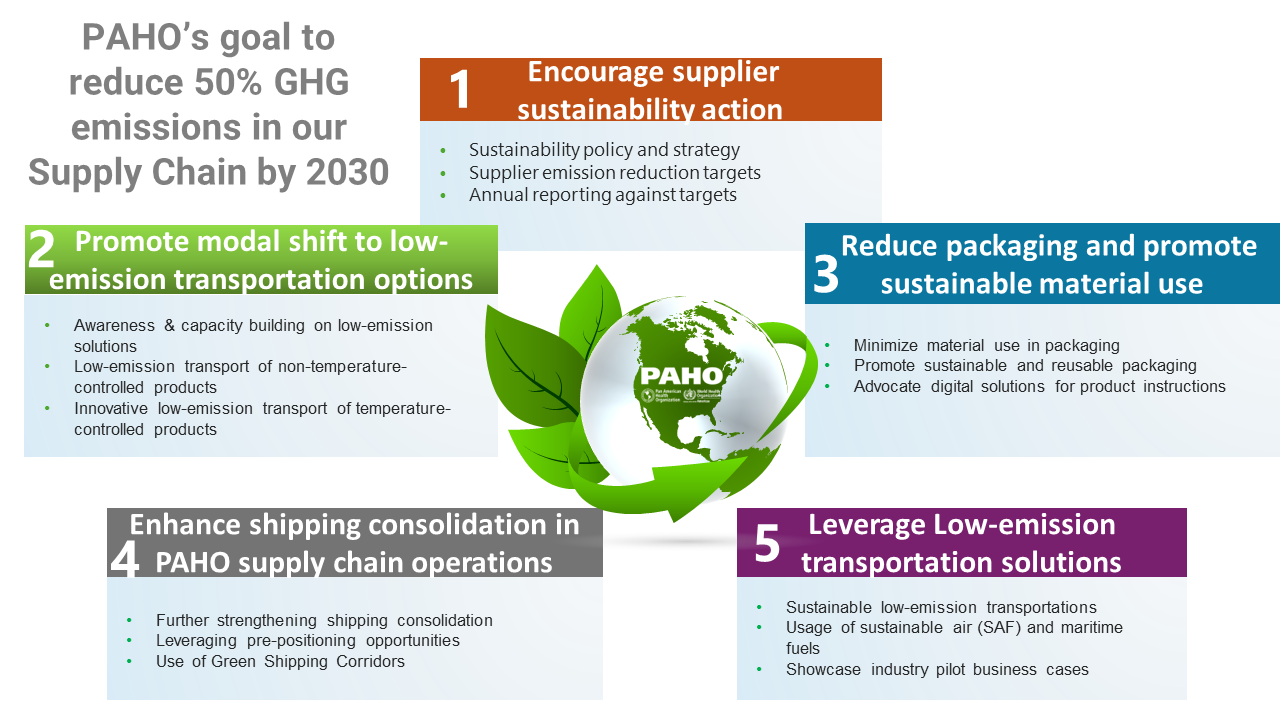PAHO will consider Sustainable Procurement to the extent possible within the context of the goods or services being purchased, and any specific country, industry, or supply market conditions.
Improving Quality of Products and Services, Increasing Resource Efficiency, Optimizing Costs
Sustainable Procurement is defined in PAHO as “requirements, specifications and criteria that are compatible and in favor of the protection of the environment, of social progress and in support of economic development, namely by seeking resource efficiency, improving the quality of products and services and ultimately optimizing costs”.
PAHO will consider Sustainable Procurement to the extent possible within the context of the goods or services being purchased, and any specific country, industry, or supply market conditions. PAHO procurement processes may thus include requirements or criteria related to the following:
- Environmental factors: climate change mitigation and adaptation; prevention of pollution; sustainable resources; protection of the environment and biodiversity.
- Social factors: human rights; labor rights; gender equality; supplier diversity; disability inclusiveness and accessibility; sustainable consumption; social health and well-being.
- Economic factors: whole life-cycle costing; local communities and micro, small and medium enterprises; supply chain sustainability and/or resiliency.
PAHO aims to reduce by 50% the GHG emission intensity factor from the transportation and distribution of procured goods by PAHO Revolving and Strategic Fund from a 2022 baseline by 2030
Stay tuned for a greener tomorrow! Our sustainability journey is always evolving, we invite you to revisit soon to discover the latest updates.


